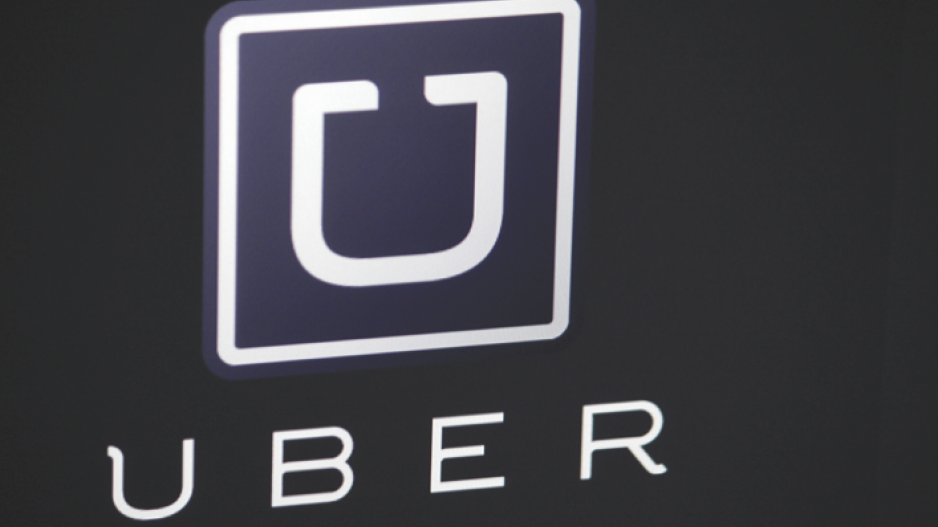With the glitzy, app-driven car-hailing service Uber knocking on doors in Edmonton, Toronto and elsewhere, Vancouver Coun. Geoff Meggs thinks itʼs only a matter of time before the upstart U.S.-based company tries again to roll into B.C.
“Uber certainly has moved very aggressively elsewhere, and no doubt weʼll see something like that here quite soon,” Meggs said.
A telltale sign of an imminent attempted foray into the local market came September 25 when a high-profile speaker appeared before the Vancouver Board of Trade. David Plouffe, Uberʼs chief adviser and a onetime campaign manager for U.S. President Barack Obama, was on hand as the face of the company that has turned traditional business models on their ear since its launch in San Francisco in 2009.
Passengers seeking a ride alert drivers, who use their own vehicles, through a mobile app, eliminating dispatchers. Once the ride is completed, the charge automatically goes on the passengerʼs credit card bill, eliminating any exchange of cash or credit cards in the vehicle.
Almost everywhere Uber has launched, traditional taxi drivers have revolted, arguing the newcomer has an unfair advantage as it is not subject to the same taxes, licensing fees and regulations they face.
Uber has proven controversial not only for the lack of regulation governing vehicles and drivers but also for its business practices. Drivers are treated as indep-en-dent contractors rather than employees, allowing the company to avoid the burden of workers’ compensation and other obligations.
That has its own pitfalls as demonstrated by a recent court ruling in the U.S. that package delivery company FedEx (Nasdaq:FDX) misclassified its drivers as independent contractors. The company controlled the drivers and they were independent contractors in name only, the courts found.
As a result, FedEx has had to shell out $228 million to its California drivers in one of the largest employment law settlements in recent memory.
Uber operated briefly in Vancouver from July 2012 to November of that same year, when it was shut down by the B.C. Passenger Transportation Board. Yet on Twitter, Uber Vancouver has almost 5,000 followers. But while Uber often takes part in round-table discussions on transportation at city hall, Meggs said the company still hasnʼt taken the necessary step of applying to the Passenger Transportation Board for re-entry into the province.
“I often get asked, ‘Why is the city stopping Uber?’” he said. “We are not stopping them. They havenʼt applied to the Passenger Transportation Board.”
Nevertheless, he has concerns that Uber would not meet the level of service required of taxi companies. For example, drivers with approved taxi companies are trained to provide service to people with disabilities, he said.
Meggs also has concerns over Uberʼs surge-pricing model. Unlike regular taxi companies, Uber raises the price when demand is high, sending an alert to drivers through the mobile app so they can take to the road when the getting is good. While itʼs the ultimate in supply-and-demand economics, it can result in unwelcome surprises to customers when their credit card bill lands.
If Uber is allowed into the city, Meggs feels it is imperative that drivers are properly trained and undergo criminal record checks.
There have been several incidents of bad publicity for the company. Earlier this year, a Delhi woman claimed to have been raped by an Uber driver. In 2013, an Uber driver ran over and killed a six-year-old girl in San Francisco. The companyʼs marketing tactics have also been called into question.
Meggs pointed out that taxi companies have recently launched a digitally driven service called eCab, and the transportation board has just approved a luxury car service called Ripe, which operates along the lines of the Uber model.
Car-sharing services like Uber and home-sharing services such as Airbnb – through which people rent out parts of their home to travellers on the Internet – are part of an emerging sharing economy that is upsetting the old order. Paul Cubbon, an instructor in the marketing and behavioural science division and the leader of the entrepreneurship group at the University of British Columbiaʼs Sauder School of Business, likens the arrival of these new models to the way e-commerce rocked the retail industry some time ago.
“There is kind of a messy period of time when people scramble to understand it and to play out in this new competitive landscape, and then you tend to see more consolidation and stability again as people understand and play by the new rules of the game,” Cubbon said. “Itʼs unclear where it will all play out, but I donʼt think weʼre going backwards to where it was before,” he added. “The genie is out of the bottle.”
Uber Canada did not respond to requests for comment on this story. •
(See also: “Bus, taxi, transit businesses on collision course with Uber options ” by Peter Ladner)




